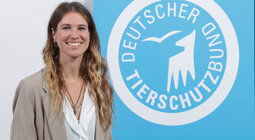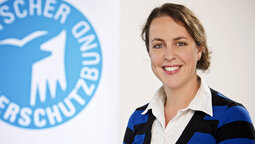The German Animal Welfare Federation welcomes the comprehensive recommendations presented and discussed yesterday by the European Food Safety Authority (EFSA) for chickens for fattening and laying hens. The EFSA's independent scientific assessments serve as a benchmark for the EU Commission in the upcoming revision of EU animal welfare legislation and, in the view of the Federation, must also be taken into account when amending the national legal framework.
"With its papers, the EFSA clearly highlights the main deficits in the keeping and handling of chickens in conventional agriculture and derives sensible improvements. For example, significantly more space, material to keep them occupied and structure as well as an outdoor climate area are important points that would significantly improve the situation for the animals," says Inke Drossé, Head of the Department for Animals in Agriculture at the German Animal Welfare Federation. "This important scientific work must not be ignored by politicians in the upcoming amendments at federal and EU level!"
NEEDS-BASED HUSBANDRY AND BREEDING CONDITIONS
In contrast to the current regulations in Germany and the EU, according to EFSA, chickens should be kept in such a way that the birds can express their natural behavior. To this end, the authority requires pecking stones, raised levels, perches and ramps and emphasizes the importance of constantly dry litter. Outdoor enclosures and runs are explicitly recommended. The EFSA also makes specific recommendations for stocking densities, which finally include regulations for parent birds and pullets. The German Animal Welfare Federation particularly welcomes the fact that the negative consequences of high-performance breeding are clearly highlighted, at least for broilers, and that slower-growing breeding lines are called for. For improved controls, the EFSA recommends the collection of animal-related criteria, which should also be recorded at the slaughterhouse and on the basis of which various husbandry and breeding problems can be reliably identified. At present, criteria such as lameness, soiling or behavioral problems do not have to be monitored. The experts also take a clear stance against cage farming, which is still widespread in other countries, and against mutilations such as painful beak trimming, which is also still practised in other EU countries.
BREEDING PROBLEMS WITH LAYING HENS NOT TAKEN INTO ACCOUNT
Although animal welfare campaigners are largely positive about the EFSA recommendations, the German Animal Welfare Federation is missing some important points: The fact that laying hens also suffer from extreme breeding and that egg-laying performance should be limited is not clearly addressed. In addition, brother chickens and their needs are only briefly mentioned. "Overall, the proposals nevertheless represent a big step in the right direction," says Drossé. "The EFSA papers make it clear that the entire production system for broilers and laying hens across the EU is highly problematic in its current form and must be aligned with the needs of the animals instead of continuing to adapt them to the system!"
Note to editors: The EFSA recommendations for laying hens can be viewed here: https://www.efsa.europa.eu/en/efsajournal/pub/7789, those for broilers here: https://www.efsa.europa.eu/en/efsajournal/pub/7788





